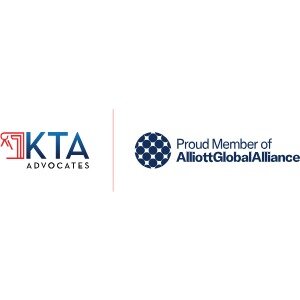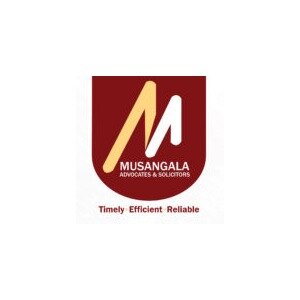Best Bankruptcy & Debt Lawyers in Uganda
Share your needs with us, get contacted by law firms.
Free. Takes 2 min.
Or refine your search by selecting a city:
List of the best lawyers in Uganda
About Bankruptcy & Debt Law in Uganda
Bankruptcy and debt law in Uganda is governed by both statutory and common law principles. The Insolvency Act, 2011, is the primary legislation that handles matters of bankruptcy and insolvency, catering to both individual debtors and corporate entities. The law aims to provide mechanisms for the efficient settlement of debts while offering protections for both creditors and debtors. Bankruptcy proceedings in Uganda involve a legal process where individuals or companies who are unable to repay their debts can seek relief, either through restructuring their debts or liquidating their assets.
Why You May Need a Lawyer
Engaging a lawyer can be crucial in several situations concerning bankruptcy and debt:
- Filing for Bankruptcy: Understanding the legal requirements and ensuring correct filing, whether as an individual or a corporation.
- Debt Negotiation: Assisting with negotiation, settlement, or reduction of debt with creditors, which requires legal expertise to protect your rights.
- Court Representation: Representing you in court proceedings to protect your interests and possibly avoid unfavorable judgments.
- Legal Advice: Providing insight into your rights and obligations under Ugandan law to ensure compliance and protect assets.
- Credit Report Errors: Assisting in correcting errors on credit reports that can impact financial stability.
Local Laws Overview
The key aspects of local laws relevant to bankruptcy and debt in Uganda include:
- The Insolvency Act, 2011: Provides the framework for bankruptcy and insolvency proceedings in Uganda, detailing procedures for the declaration of bankruptcy and the management of insolvent estates.
- The role of Official Receiver: The Official Receiver acts in both personal and corporate insolvencies, responsible for overseeing the administration of bankruptcies and liquidations.
- Debt Recovery Regulations: Legal procedures that govern how creditors can reclaim debts, including through attachment and sale of debtor’s property.
- Rehabilitation Provisions: Mechanisms that allow debtors to reorganize and work out a repayment plan without liquidating all their assets, with the aim of restoring their financial health.
Frequently Asked Questions
What is the first step in filing for bankruptcy?
To file for bankruptcy in Uganda, you need to petition the High Court. It's advisable to consult with a lawyer to ensure all legal requirements are met for your specific situation.
Can businesses apply for bankruptcy under Ugandan Law?
Yes, corporations can file for insolvency under the Insolvency Act. This process is generally referred to as liquidation or receivership.
What is the role of a liquidator?
A liquidator is appointed to oversee the liquidation of a company’s assets, distributing proceeds to creditors in accordance with priority claims.
How does bankruptcy affect an individual’s credit rating?
Filing for bankruptcy can significantly impact an individual's credit score, making it difficult to obtain credit in the future. However, it also presents an opportunity for a fresh start financially.
Can all debts be discharged in bankruptcy?
No, certain debts like child support, alimony, and certain tax obligations are non-dischargeable in bankruptcy proceedings.
What is the timeline for bankruptcy proceedings?
The duration of bankruptcy proceedings can vary based on the complexity of the case, but it typically takes several months to years to conclude completely.
Are there alternatives to bankruptcy?
Yes, alternatives include debt restructuring, negotiation with creditors, entering a debt management plan, or formal debt review processes.
What happens to secured debts in bankruptcy?
Secured creditors may claim their security interest in the asset unless the asset can be sold as part of the bankruptcy process to satisfy debts.
Can you stop creditor harassment after filing for bankruptcy?
Once bankruptcy is filed, an automatic stay is typically imposed, which halts most collection actions against the debtor or their property.
Is it necessary to attend court when filing for bankruptcy?
The petitioner might need to attend court hearings, especially when creditors contest the bankruptcy or any proposals for debt settlement.
Additional Resources
For more information and assistance, consider reaching out to the following resources:
- Uganda Law Society: Provides a list of qualified legal practitioners specializing in bankruptcy and debt.
- Office of the Official Receiver: An official body handling bankruptcies and insolvency issues.
- Ministry of Justice and Constitutional Affairs: Offers guidance on interpreting bankruptcy laws and procedures.
- Local Non-Governmental Organizations: Such as Legal Aid clinics, provide free or subsidized advisory services on debt issues.
Next Steps
If you require legal assistance in bankruptcy and debt matters, consider the following steps:
- Evaluate Your Situation: Understand your financial standing, including all assets, liabilities, and potential legal liabilities.
- Seek Professional Advice: Contact a lawyer who specializes in bankruptcy law. Professional advice is invaluable in navigating the complex legal landscape.
- Prepare Documentation: Gather all financial documents, including credit reports, debt statements, income sources, and any previous communications with creditors.
- File Accordingly: Work with your lawyer to prepare and submit necessary petitions or filings to the appropriate legal bodies.
- Explore Alternatives: Before filing for bankruptcy, discuss alternative debt resolution methods with your lawyer to find a potentially less severe solution.
Lawzana helps you find the best lawyers and law firms in Uganda through a curated and pre-screened list of qualified legal professionals. Our platform offers rankings and detailed profiles of attorneys and law firms, allowing you to compare based on practice areas, including Bankruptcy & Debt, experience, and client feedback.
Each profile includes a description of the firm's areas of practice, client reviews, team members and partners, year of establishment, spoken languages, office locations, contact information, social media presence, and any published articles or resources. Most firms on our platform speak English and are experienced in both local and international legal matters.
Get a quote from top-rated law firms in Uganda — quickly, securely, and without unnecessary hassle.
Disclaimer:
The information provided on this page is for general informational purposes only and does not constitute legal advice. While we strive to ensure the accuracy and relevance of the content, legal information may change over time, and interpretations of the law can vary. You should always consult with a qualified legal professional for advice specific to your situation.
We disclaim all liability for actions taken or not taken based on the content of this page. If you believe any information is incorrect or outdated, please contact us, and we will review and update it where appropriate.
Browse bankruptcy & debt law firms by service in Uganda
Uganda Attorneys in related practice areas.
Browse bankruptcy & debt law firms by city in Uganda
Refine your search by selecting a city.














